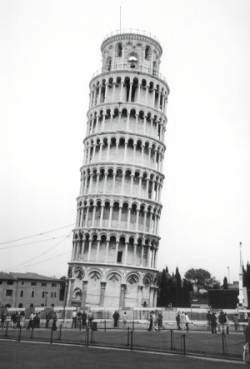



PISA and LUCCA Limousine
car rental with driver in TUSCANY - Private tours provided by Florence Limousine


Enjoy a day in Tuscany discover Pisa and Lucca
LUCCA - Piazza dell' Anfiteatro
LUCCA
Pink-brick town ramparts surmounted by trees and grass, narrow streets lined with the tall facades of old houses and numerous churches, some of which are among the finest achievements of Pisan Romanesque architecture: these are some of the memorable images Ieft by this city, which was once a minor capital. It has remained surprisingly lively and, sheltered behind its ramparts, untouched by 20C town planning.
The origins of the town of Lucca are remembered in its name, which comes from a Celto-Ligurian word, Luk, meaning “marshy place". It was colonized by Rome in the early 2C BC and still has the layout of a Roman military encampment, with streets intersecting at right angles along each side of two main perpendicular thoroughfares. It was already a large town when Caesar, Pompey and Crassus met there to form the First Triumvirate.
PISA a bit of informations
Pisa lies 13 kilometerS from the sea on a vast flood plain protected on the northeast by Monte Pisano where the lower Valdarno joins the coastal plain. The origins of Pisa are stili now uncertain. Some Latin historians, including Livy, claim that it was founded by the Ligurians. Others, including Servius, maintain that it was built by Phocaean merchantS. Whatever the case may be, Pisa does not seem to have fully developed until Roman times when we know it was an ally of rome in the Sec- ond Punic war, a Roman city in 89 B.C. and a flourishing colony in the times of AugustUS. In 641 it feil under Lornbard dominion and was strategically important in that it was the first and only port the LombardS controlled until they succeeded in taking possession of Genoa. Under the carolingian dynasty it became part of the marchesato of Tuscany but, even though a subject city, it was actually autonomOuS enough to suceed in becoming a free Commune at the beginning of the 11th century. This was the beginning of an extremelY prosperOUs period in its history which lasted almost three centuries. The city became a powerful center thanks to the control of the seas by its relentless fleet. In this period Pisa became an ally of the Normans and aided them in their conquest of Sicily. It participated in the first crusade with 12 ships and founded numerouS merchaiit colonieS in the East, expanding its commercial dominion. In the 12th century the city was at the acme of its fortunes. Pisa won a great victory over the Muslim fleet and later defeated its rival Amalfi. Evidence of this felicitous period are the many religious and profane buildings which sprang up in the cěty. Work on Cathedral was begun and urban growth led to a restructuring of the city walls. ArtisticallY, too, Pisa became a great cultural center, above all thanks to the genius and personalitY of sculptors such as Nicola Pisano, his son Giovanni Pisano, and Arnolfo di Cambio, all of whom, together with a goodly group of other illustrious artists, created schools which were held to such account that they served as example throughout Italy. A slow but inexorable decline began with the l3th and 14th centuries, caused by the continuOUS clashes on land with its neighbors Lucca and Florence and on sea with its bitter rivais Genoa and Venice. In the 15th century Florence, ever more powerful, set its eyes on Pisa and after various struggles and vicissitudes Pisa became subject to the Medici city. In addition, the building of the port of Livorno (Leghorn), which in the meantirne was becoming another rich marine power, deprived Pisa of her supremacy over the seas and definitely sanctioned the city’s decline. But Pisa was not a city to be overcome. Defeated on a military and political level, it reconfirmed its status as a great city of culture, one of the most important university centers. In fact it was no less a figure than Galileo Galilei who initiated a prestigious scientific tradition which then continued under the Lorraine dynasty. In 1860 Pisa became part of the Kingdom of Italy. Today small and self-contamed as it is, concentrated around its center it is a city rich in cultur- al ferments stimulated by a flourishmg economy that depends above all on the activity of the pharmaceutical, textile and glass industries and by an unceasing tourism.
The famouse " LEANING TOWER " of Pisa
SEARCH ITEMS AVAILABLE: Pisa Lucca limousine - Car rental with driver Tuscany - pisa lucca limousine, car rental with driver tuscany, Lucca private tours
San Gimignano private tour by Florence Limousine - Monteriggioni excursion - Private tour to Siena - wine tour to Chianti region - Sienna - Montalcino Brunello wine tour and Sant' Antimo Abbey - Montepulcian private wine tour - Pienza - Val D'Orcia - Pisa car rental with driver - Lucca Limousine service - Private tour to Terre - Chianti Classico wine tour - Antinori and Fonterutoli - Montepulciano nobile wine tour - Poliziano and Valdipiatta - Montalcino Brunello wine tour - Banfi and Barbi - Florence car rental with driver - Chianti Classico wine tour - Antinori and Fonterutoli - Private tour to Arezzo - Orvieto - Pisa Limousine service, private transfers from and to airport - Florence Tuscany Chianti private tours - Limousine Florence and Tuscany - Florence - Livorno limousine private tours from cruise dock in Livorno - livorno cruise car rental with driver - Pisa and Lucca Limousine service - Siena and Chianti Chianti Limousine - Private tours Florence and Chianti region